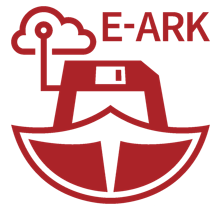May 2024 – Webinar
Discover how managing the data life-cycle of electronic archiving can contribute to reducing carbon footprint, particularly through indicators and calculation methods to assess emissions.
Global greenhouse gas emissions from digital sources have been measured at 4% of total emissions. The trajectory due to video and content production in all its forms is growing very rapidly, especially when artificial intelligence is included. If nothing is done, this growthis estimated to increase by +45% over the next 6 years. It is within this context that electronic archiving, by managing the data life-cycle, can regulate or even reduce digital emissions.
We are at the very beginning of research and studies to assess the impact of electronic archiving. As part of its Corporate Social Responsibility commitments, Serda-Archimag, along with carbon engineers from the Carbon Cooperative in La Rochelle, has produced measurement indicators. These indicators now serve as sources for an academic research project led by HEG Geneva.
The webinar aims to share the latest findings in responsible information management by delving into data archiving within the E-ARK model (based on OAIS). These include key figures for the digital carbon footprint, carbon footprint calculation methods, estimation of environmental benefits of electronic archiving, emissions according to the life-cycle of data and documents, metadata, and data processing. Not forgetting the importance of managing digital bulk, decommissioning, and artificial intelligence, which could have a significant rebound effect.
Finally, for electronic archiving to contribute to the environment, several success factors need to be considered: necessary skills, benchmarks and calculation methods, and emissions reduction management. Emission reductions resulting from electronic archiving can be achieved through multifactorial actions relating to hardware components (data centres, computers, networks), and organisations with practical solutions such as pooling and optimisation of usage and processing.
To download the slides of this webinar click here.
